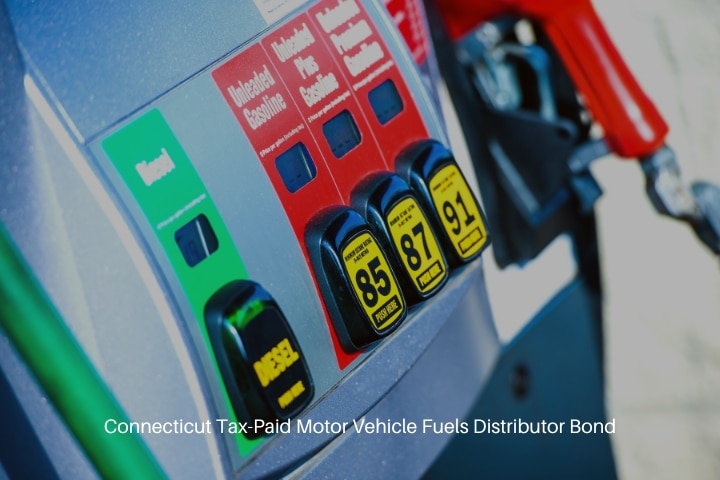
Get An Instant Quote on Connecticut Tax-Paid Motor Vehicle Fuels Distributor Bond Now
In the intricate web of tax regulations governing the distribution of motor vehicle fuels in Connecticut, there exists a crucial yet often overlooked component: the Tax-Paid Motor Vehicle Fuels Distributor Bond. While it may sound like bureaucratic jargon, this bond plays a pivotal role in ensuring compliance with state laws and safeguarding the interests of both consumers and the government. But what exactly is this bond, and why is it essential? Let’s delve deeper into the intricacies of this regulatory measure.
The imposition of taxes on motor vehicle fuels is crucial for funding infrastructure projects, maintaining roads, and supporting various state initiatives. However, ensuring compliance with these tax obligations can be challenging, given the vast network of distributors and retailers involved in the fuel supply chain. Herein lies the importance of the Tax-Paid Motor Vehicle Fuels Distributor Bond.
By requiring distributors to obtain this bond, the state government adds an extra layer of assurance that taxes will be paid promptly and in full. In the event of default or non-payment of taxes by the distributor, the bond provides a financial guarantee to cover the outstanding tax liabilities. This helps mitigate the risk of revenue loss for the state and ensures the continued funding of essential public services.
Obtaining a Tax-Paid Motor Vehicle Fuels Distributor Bond involves working with a surety company licensed to operate in Connecticut. The bond amount is determined by the DRS and is typically based on the distributor’s expected monthly tax liability. The distributor pays a premium to the surety company, which then issues the bond, assuming the risk on behalf of the distributor.
In the event of a tax delinquency, the DRS can make a claim against the bond to recover the unpaid taxes. The surety company will then investigate the claim and, if valid, compensate the state up to the full amount of the bond. The distributor is ultimately responsible for reimbursing the surety company for any payments made on their behalf.
In the intricate landscape of motor vehicle fuel taxation, the Connecticut Tax-Paid Motor Vehicle Fuels Distributor Bond stands as a critical safeguard against non-compliance and revenue loss. By requiring distributors to obtain this bond, the state ensures the timely collection of taxes vital for funding essential services and infrastructure projects. While it may seem like a mere regulatory requirement, the significance of this bond cannot be overstated in maintaining the fiscal health of the state and upholding the integrity of its tax system.
To comprehend the significance of the Connecticut Tax-Paid Motor Vehicle Fuels Distributor Bond, it’s essential to understand its purpose and mechanics. Essentially, this bond serves as a form of insurance that guarantees payment of taxes imposed on motor vehicle fuels by the State of Connecticut. It is required by the Connecticut Department of Revenue Services (DRS) for any entity engaged in the wholesale distribution of motor vehicle fuels within the state.

No, the Connecticut Tax-Paid Motor Vehicle Fuels Distributor Bond is specifically designated for covering tax liabilities related to motor vehicle fuels distribution within the state. It cannot be utilized for any other tax obligations or liabilities, nor can it be used to cover general business expenses or debts.
While the Tax-Paid Motor Vehicle Fuels Distributor Bond is the most common method of compliance, there are alternative options available. Distributors may be able to secure an Irrevocable Letter of Credit (ILOC) from a financial institution in lieu of a bond. However, the requirements and acceptance of ILOCs may vary, and distributors should consult with the Connecticut Department of Revenue Services for specific guidance.
Yes, the bond amount for the Tax-Paid Motor Vehicle Fuels Distributor Bond can change based on various factors, including the distributor’s sales volume and tax liabilities. The Connecticut Department of Revenue Services periodically reviews and adjusts the bond amount to ensure it adequately covers potential tax liabilities. Distributors should stay informed about any changes in bond requirements to maintain compliance with state regulations.
Axcess Surety is the premier provider of surety bonds nationally. We work individuals and businesses across the country to provide the best surety bond programs at the best price.